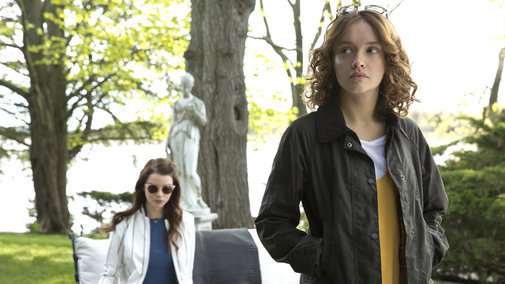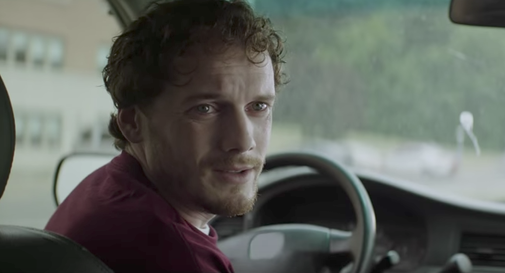By Spencer Coile
 Thoroughbreds, written and directed by newcomer Cory Finley, was originally intended to be a play. The film follows the twisted relationship of two teens: Amanda (Olivia Cooke), who claims to feel no emotions whatsoever, and Lily (Anya Taylor-Joy), a spoiled rich girl with a history of lying. Friends back in grade school, the two drifted apart, but reconnect when Amanda’s mom asks Lily to be Amanda’s tutor. This all takes a turn for the bizarre when Lily enlists Amanda to help kill her stepfather. All hell begins to break loose.
Thoroughbreds, written and directed by newcomer Cory Finley, was originally intended to be a play. The film follows the twisted relationship of two teens: Amanda (Olivia Cooke), who claims to feel no emotions whatsoever, and Lily (Anya Taylor-Joy), a spoiled rich girl with a history of lying. Friends back in grade school, the two drifted apart, but reconnect when Amanda’s mom asks Lily to be Amanda’s tutor. This all takes a turn for the bizarre when Lily enlists Amanda to help kill her stepfather. All hell begins to break loose.
The film’s rapid fire dialogue makes it very easy to envision a staged production. Fortunately, Finley has just as much skill with directing as he does writing, and so Thoroughbreds becomes a truly cinematic experience. It's absurd, gripping, and deeply uncomfortable...
The film opens with Amanda stroking a horse. Fading to black, the next shot is of Amanda pulling out a knife. Offering very little in the way of context, it jumps forward in time to the rekindling of Amanda and Lily’s friendship. Their interactions are initially awkward; Lily does not quite know how to handle Amanda’s abrasiveness.
Cooke, always sporting a glossed over look in her eye, walks a very delicate tightrope between being disconnected from her surroundings and being completely apathetic. It’s her brashness that intrigues Lily. And as the two become closer, scheming and working on their crocodile tears, a shift begins to take place. These two women come across as fundamentally different from one another, but are they actually?
It’d be easy to write Thoroughbreds off as calculated. It is. From the finely tuned dialogue that moves so quickly it's hard to keep up, to the precise editing and cinematography – the whole ordeal is cold and detached. But that crispness feels fully intentional to Finley’s world building. Even down to the wardrobe each girl sports (neutral, light colors), the film reflects Amanda and Lily’s cold, shallow, sometimes vapid realities. It is certainly unsettling, but not without purpose.
Aside from the two central performances, the only other character who is given perspective is Tim (the late Anton Yelchin). Working at a retirement home and trying to make it big as a drug dealer, Yelchin offers the briefest glimpses of broad humor in a film that would otherwise feel grey and dark. Witnessing an actor explore the lightness and darkness of a character like Tim would already be impressive; it's a standout supporting performance – but knowing that this would be one of the last and finest performances Yelchin ever gave makes his portrayal all the more heartbreaking.
By the end, many of the questions left lingering throughout the film are answered, however incompletely. Finely shows but doesn't tell so the audience is oftentimes left with their own imagination to sort it out. Moments lurch with dread, and an icy reserve. And very much like its protagonists, not everything is what it appears to be. There are times when it's unclear whether to look away or not. But perhaps that is what makes it so unnerving and so effective.
Grade: B+


